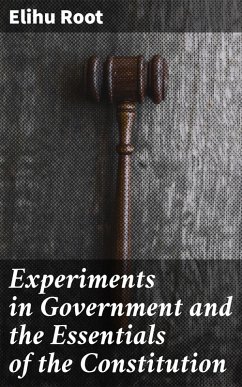
The Olynthiacs and the Phillippics of Demosthenes (eBook, ePUB)
Enriched edition. Literally translated with notes
Kommentar: McAllister, Dylan / Redaktion: Good Press / Übersetzer: Kennedy, Charles Rann
Versandkostenfrei!
Sofort per Download lieferbar
0,49 €
inkl. MwSt.
Weitere Ausgaben:

PAYBACK Punkte
0 °P sammeln!
In "The Olynthiacs and the Philippics of Demosthenes," the renowned Athenian orator presents a compelling call to action against the growing threat of Philip II of Macedon. The work is a masterclass in rhetoric, employing vivid imagery and emotional appeals to stimulate civic engagement and resistance among the Athenian populace. Composed at a time of political upheaval and imminent danger, these speeches reflect the urgency and philosophical depth characteristic of the Classical period, as Demosthenes deftly combines persuasive oratory with biting critique of contemporary politics. Demosthene...
In "The Olynthiacs and the Philippics of Demosthenes," the renowned Athenian orator presents a compelling call to action against the growing threat of Philip II of Macedon. The work is a masterclass in rhetoric, employing vivid imagery and emotional appeals to stimulate civic engagement and resistance among the Athenian populace. Composed at a time of political upheaval and imminent danger, these speeches reflect the urgency and philosophical depth characteristic of the Classical period, as Demosthenes deftly combines persuasive oratory with biting critique of contemporary politics. Demosthenes, hailed as one of the greatest orators in Western history, emerged from a challenging youth marked by a speech impediment. His relentless perseverance, along with his dedication to public service, shaped his convictions and propelled him into the heart of Athenian political life. The speeches contained in this volume not only encapsulate his passionate defense of democracy but also serve as a testament to his belief in the power of civic duty against tyranny. Highly recommended for scholars and enthusiasts of ancient history and political theory, this collection offers a profound insight into the mindset of a pivotal historical figure and the tumultuous era he navigated. Readers will find in Demosthenes' impassioned rhetoric not only a call to action but also timeless lessons on leadership and civic responsibility. In this enriched edition, we have carefully created added value for your reading experience: - A comprehensive Introduction outlines these selected works' unifying features, themes, or stylistic evolutions. - The Author Biography highlights personal milestones and literary influences that shape the entire body of writing. - A Historical Context section situates the works in their broader era-social currents, cultural trends, and key events that underpin their creation. - A concise Synopsis (Selection) offers an accessible overview of the included texts, helping readers navigate plotlines and main ideas without revealing critical twists. - A unified Analysis examines recurring motifs and stylistic hallmarks across the collection, tying the stories together while spotlighting the different work's strengths. - Reflection questions inspire deeper contemplation of the author's overarching message, inviting readers to draw connections among different texts and relate them to modern contexts. - Lastly, our hand-picked Memorable Quotes distill pivotal lines and turning points, serving as touchstones for the collection's central themes.
Dieser Download kann aus rechtlichen Gründen nur mit Rechnungsadresse in A, B, BG, CY, CZ, D, DK, EW, E, FIN, F, GR, H, IRL, I, LT, L, LR, M, NL, PL, P, R, S, SLO, SK ausgeliefert werden.













